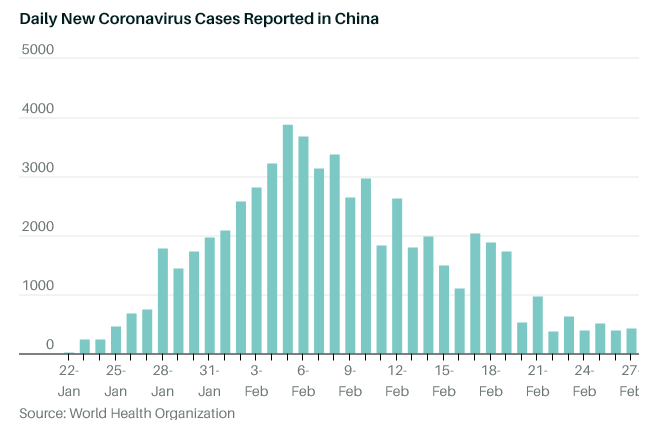Brutal allergy season coming, another E.coli outbreak, we’re probably not all doomed, and more
29 Feb 2020
Posted by Andrew Kantor
Correction: In yesterday’s Buzz, we erroneously referred to Pepsi’s color-free product as “Pepsi Clear.” It was in fact “Crystal Pepsi.” The joke still stands, but we regret the error.
Spring is coming
The 2020 spring allergy season is gonna be a doozy. “Brutal” is the word for the eastern part of the country.
AccuWeather meteorologists say Americans who live in the eastern United States may want to stock up on tissues. It’s going to be a long and severe season this spring as predicted above-normal rainfall and near-average temperatures mean much of the region will be ripe for tree, weed and grass pollen production.
Reminder: The GPhA Board is listening and wants to hear from you
A story in the New York Times, and a recent study by two GPhA members, found that pharmacist burnout and stress is putting patients at risk. The GPhA Board of Directors asked for your perspective, and wants to hear from you on this important issue.
Click here to read the details, and to use an anonymous form to tell us your perspective.
Migraines: 100mg of prevention
The FDA has approved Vyepti — the first migraine preventative drug. It’s an IV med that needs to be taken monthly, and human trials found it worked immediately and can last up to three months.
Hot diabetes treatments
Did you wake up this morning and think, “Gosh, I wonder what are the most prescribed meds for type 2 diabetes”?
Empagliflozin and dulaglutide. You’re welcome. Wonder why? Medscape’s got you covered.
Back the PAC — and be true to your school
Each year, APhA challenges student pharmacists to get involved in advocacy through the Back the PAC Campaign. APhA-ASP chapters are challenged to fundraise money for the APhA PAC. Mercer, PCOM, and UGA have been working hard to fundraise for this campaign.
At the APhA Annual Meeting, the school that fundraises the most overall will be awarded a $500 gift card for their APhA chapter, while schools in each division that fundraise the most for their division will be awarded a $100 gift card.
If you’re an APhA member interested in helping these schools reach their goals by contributing to the APhA PAC, you can click here to make a donation.
Be sure to credit a school with your donation so it gets credit and is added to their total for the Back the PAC Campaign!
How would you cure celiac disease?
If you said, “By using nanoparticles containing gliadin,” you might be on the right track. It’s actually gliadin — part of the gluten found in wheat — that celiac patients can’t tolerate.
Researchers at the University of Helsinki injected celiac mice with nanoparticles that contained gliadin, and found that their bodies didn’t reject it the way they would gluten from food.
These findings support the concept that it may be possible to “reprogram” the immune system in celiac patients, and to instruct T lymphocytes to tolerate gluten again.
The latest E.coli outbreak
Sprouts. Clover sprouts from Jimmy John’s.
CoviD-19: Bad news, good news
Bad news
The virus continues to spread, and often with infectious people not showing symptoms.
The CDC lost weeks it could have been tracking the virus because it wanted to make its own test, rather than use the WHO’s. And when the CDC’s test came out, it didn’t work properly.
U.S. officials are giving mixed and confusing messages about the severity of the virus and the likelihood of spread.
Sometimes they’re simply withholding information: The FDA reported the first drug shortage … but won’t say what the drug is.
Good news
The mortality rate of the virus is still low — and those numbers include deaths from before Chinese health officials were even sure what they were dealing with.
Protection is simple: handwashing and Purell.
Reported cases in China have dropped — and continue to do so.

The sleeping giant could wake: The U.S. might invoke the Defense Production Act “to rapidly expand domestic manufacturing of protective masks and clothing to combat the coronavirus in the United States.”
Perspective: The flu has infected as many as 45 million Americans and killed up to 46,000 this season — and does that every year.


